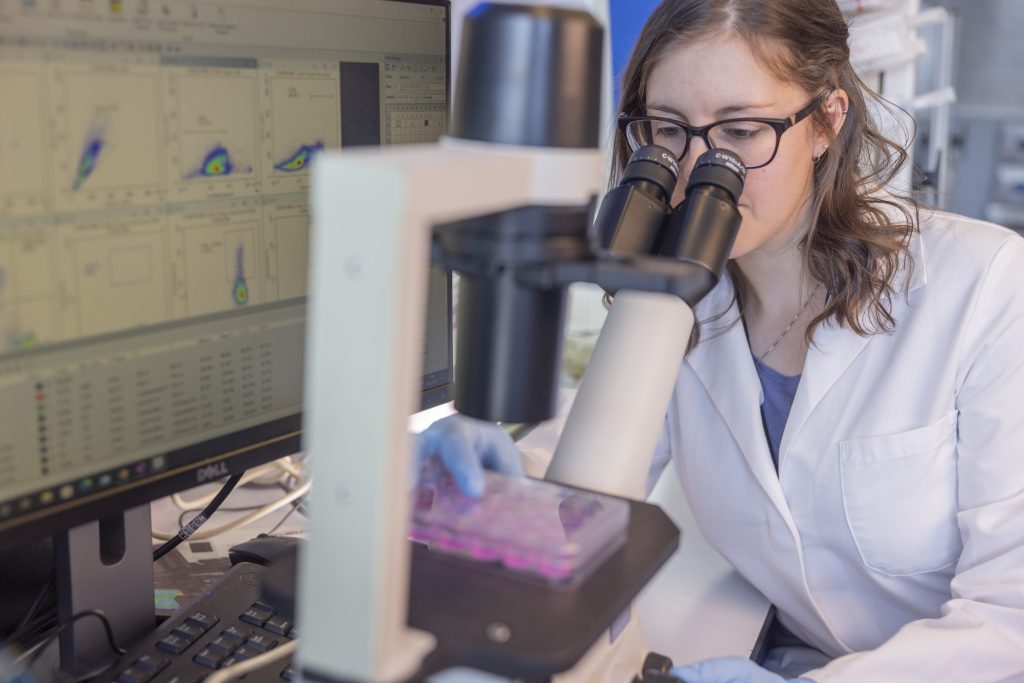
Patients play a vital role at all stages of cancer research in Wales. Their contributions to laboratory science are not always obvious, but they often form the foundation of exciting new studies.
Dr Stephanie Burnell is a WCRC- funded researcher focused on colorectal cancer at the University Hospital of Wales and Cardiff University. She is working with clinicians and patients in South Wales to collect cancer samples, which she then develops into organoids.
Cancer organoids are 3D ‘mini’ cancers that are made by growing stem cells in the lab. They can be used to study how normal tissues and cancers form, and to test new drugs and other kinds of treatment. They can also be grown from normal tissue to create ‘healthy’ organoids.
Dr Burnell, supervised by Prof Awen Gallimore, is creating these organoids to understand interactions between the immune system and cancer. Their aim is to explore how the immune system might recognise, isolate and kill a cancer organoid, while leaving a healthy organoid alone.
“This provides us with a set of tools that we can use to interrogate
immune function,” said Prof. Gallimore. “Dr Burnell can then experiment by adding different drugs and antibodies to these co- cultures to find out what improves the performance of the immune system.
“What we really want to do is understand the rules of immune – cancer cell engagement,” she continued. “By seeing those rules at play with our own eyes under a microscope, we can start to work out how to improve the strength of immune recognition and the ability of immune cells to kill the cancer .”
Dr Burnell has produced resources to demonstrate her work, including a lay-friendly flipbook to explain the development and use of organoids in cancer research.
Organoids developed by Dr Burnell can also be used in many different contexts and have already been shared with other cancer researchers in Wales.
“Immune cells have ‘stop’ and ‘go’ signals on their surface,” said Prof. Gallimore. “We know that cancers try to trick the immune cells into believing that they are just like normal cells and so encourage them to ‘stop’ rather than ‘go’. We want to alter that balance between
the stop and go signals on the surface of the immune cells using tricks like biotherapeutics which alter the balance in favour of the go signals.”
Dr Burnell’s work is part of a wider range of projects in Prof. Gallimore’s lab that explore the relationship between cancer and immune cells. The development of cancer organoids has exciting potential to reveal important new biology, said Prof. Gallimore.